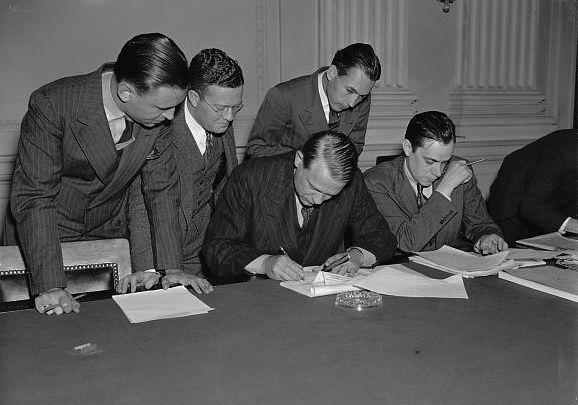A big theme in the movie was the US Govt continuous effort to find and destroy any communist in the USA .
They were 100 percent right.
What would they think today as virtually the entire Democratic Party is full blown communist ??
They were 100 percent right.
What would they think today as virtually the entire Democratic Party is full blown communist ??


